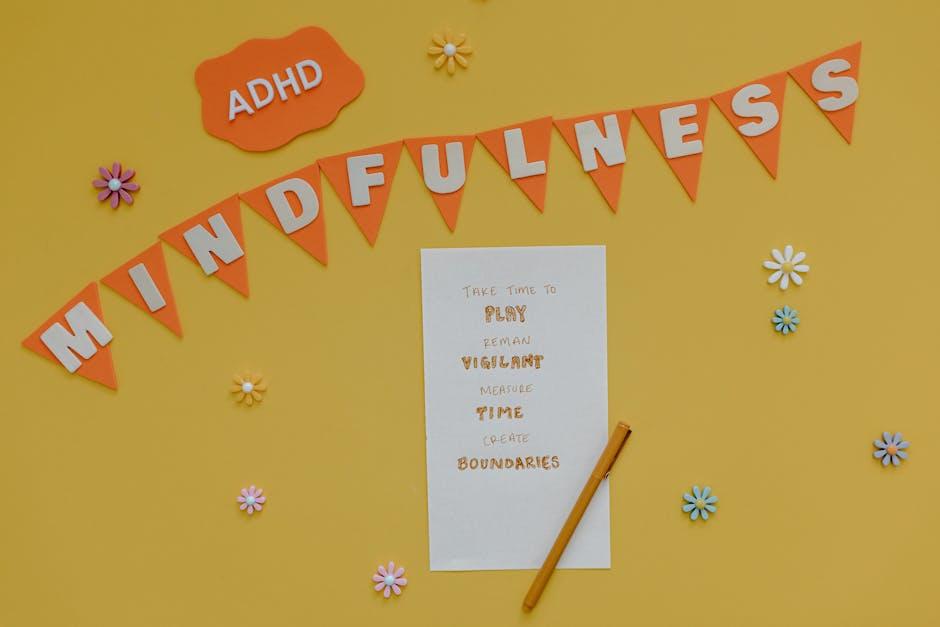In the relentless whirlwind of modern life, chronic stress often emerges as an unwelcome companion, quietly weaving itself into the fabric of our daily existence. While the pressures of work, relationships, and personal expectations can sometimes feel overwhelming, the quest for serenity remains a universal pursuit. Yet, amid the cacophony, a gentle whisper calls us back to nature, urging us to explore its timeless remedies. This article delves into the art of managing chronic stress through natural strategies, offering a harmonious blend of ancient wisdom and contemporary insights. Here, we uncover the paths to inner peace, inviting you to embark on a journey of holistic well-being, where nature’s bounty becomes a sanctuary for the mind, body, and spirit.
Understanding the Roots of Chronic Stress
Chronic stress often stems from a complex interplay of psychological, environmental, and biological factors. It can be traced back to prolonged exposure to challenging situations, whether it’s persistent work pressure, ongoing family conflicts, or financial uncertainties. Our body’s natural response to these stressors, often referred to as the “fight or flight” reaction, becomes maladaptive when it’s constantly activated, leading to a state of perpetual tension.
Several underlying elements contribute to this continuous stress cycle:
- Emotional Triggers: Unresolved trauma, fear, and anxiety can keep stress levels elevated.
- Lifestyle Choices: Poor diet, lack of exercise, and insufficient sleep can exacerbate stress.
- Social Factors: Isolation, lack of support networks, and demanding relationships can intensify stress responses.
Understanding these roots is crucial in addressing chronic stress holistically. By identifying and acknowledging these underlying causes, individuals can take the first steps towards managing stress naturally and effectively.

Holistic Approaches to Stress Reduction
Embracing a holistic lifestyle can significantly ease the burdens of chronic stress. This approach nurtures both the mind and body, focusing on achieving a harmonious balance. Mindfulness meditation, for instance, is a powerful tool that encourages present-moment awareness, helping to soothe the chaos of a racing mind. Similarly, yoga combines physical postures with breathing techniques, fostering a deeper connection with one’s inner self while enhancing flexibility and reducing tension.
- Herbal remedies: Incorporate adaptogenic herbs like ashwagandha and rhodiola, known for their stress-reducing properties.
- Aromatherapy: Utilize essential oils such as lavender and chamomile to create a calming environment.
- Nutrition: Focus on a balanced diet rich in omega-3 fatty acids, magnesium, and antioxidants to support mental health.
These practices, when integrated into daily routines, offer a comprehensive approach to managing stress naturally. By nurturing both the body and spirit, one can cultivate resilience and tranquility in the face of life’s challenges.

Mindfulness Practices for Daily Life
- Breathing Exercises: Incorporating simple breathing exercises into your daily routine can significantly help in reducing stress. Try the 4-7-8 breathing technique: inhale for four seconds, hold for seven, and exhale for eight. This practice not only calms the mind but also helps in regulating the heart rate.
- Mindful Eating: Transform your meals into a meditative practice by focusing on each bite, savoring the flavors, and appreciating the textures. This approach not only enhances digestion but also brings a sense of calm and presence, which is crucial in managing stress.
- Walking Meditation: Incorporate mindfulness into your daily walks by paying attention to the rhythm of your steps, the sensation of your feet touching the ground, and the environment around you. This practice allows you to break free from stress-inducing thoughts and fosters a connection with the present moment.
By integrating these mindfulness practices into everyday life, you can create a personal sanctuary of calmness amidst the chaos. It’s essential to approach these exercises with patience and persistence, as the benefits of mindfulness are most potent when practiced regularly. With each mindful moment, you empower yourself to navigate life’s challenges with grace and resilience.

Natural Remedies and Lifestyle Adjustments
Incorporating can significantly alleviate the burden of chronic stress. Herbal teas such as chamomile and lavender are renowned for their calming effects, helping to soothe the mind and body. Essential oils like bergamot and ylang-ylang, when diffused or applied topically, can provide an aromatic escape from the pressures of daily life. Additionally, consider integrating adaptogenic herbs such as ashwagandha and rhodiola into your routine, as they are known to enhance the body’s resilience to stress.
Adopting mindful lifestyle changes is equally vital. Regular physical activity not only boosts endorphins but also improves overall well-being. Mindfulness practices like meditation and yoga promote mental clarity and emotional balance. Moreover, cultivating a consistent sleep schedule ensures the body has adequate time to repair and rejuvenate, while healthy nutrition supports optimal brain function. Lastly, fostering strong social connections can provide a crucial support system, reminding you that you are not alone in navigating life’s challenges.
